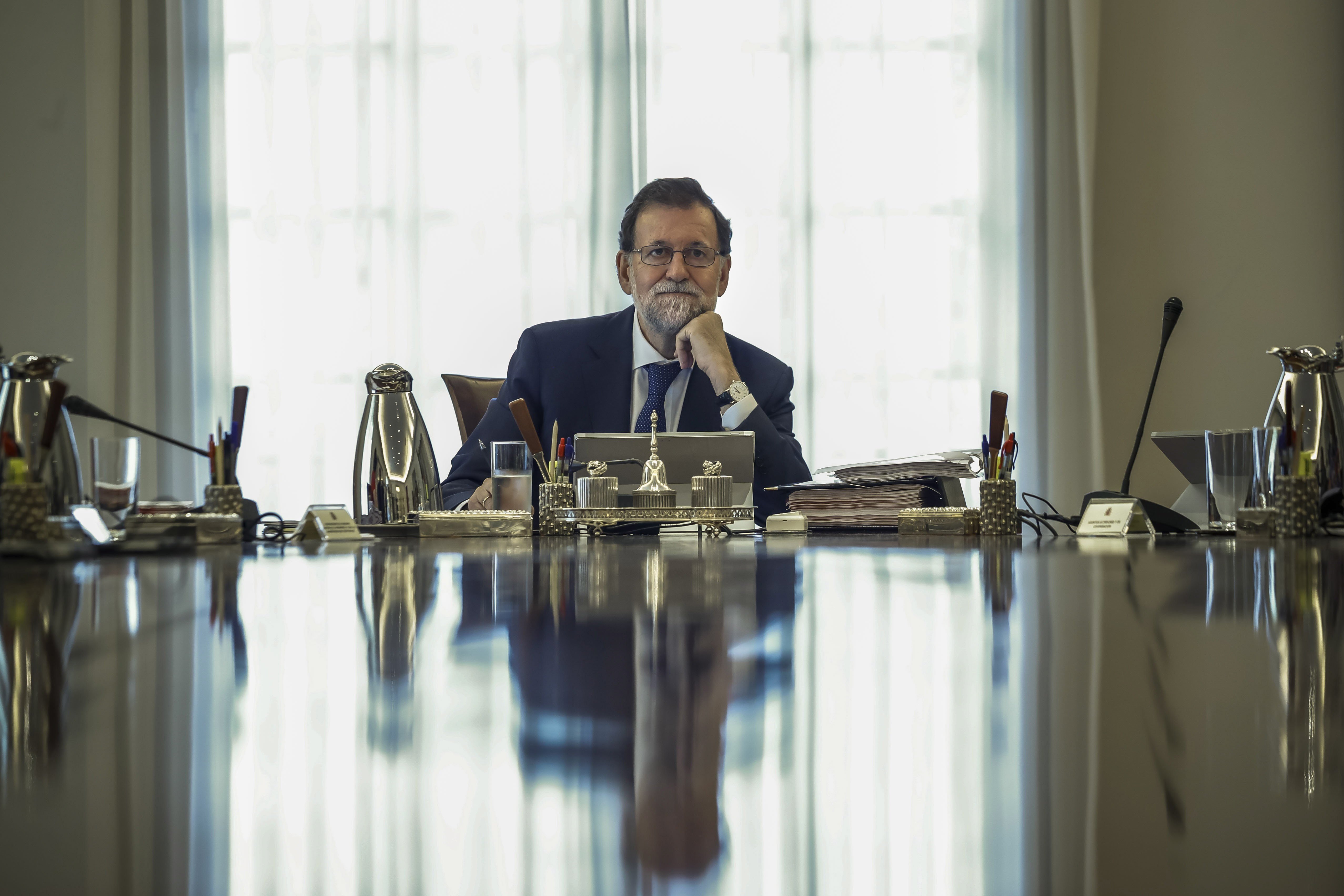The Spanish government has this Friday intensified the legal siege against the independence process, despite the Catalan government's refusal to stop the preparations for the 1st October referendum. Their spokesperson, Íñigo Méndez de Vigo, announced the presentation to the Constitutional Court of an appeal that the Law of Transitional Jurisprudence is unconstitutional, while also announcing that there is another in progress about certain articles of the law of the Tax Code, an embryonic version of Catalonia's own Treasury. This second will be submitted to the Court when it is published in the Catalan government's official gazette.
"It's curious that it's the foundational law for the new republic, which, by the way, does not recognise the right to decide that they're asking the [Spanish] state for" said De Vigo. This new contestation comes after prime minister Mariano Rajoy presented on Thursday the interlocutory order for the suspension of the agreements of the Parliament's Board to accept the bill into consideration. "We're in a climate of institutional breakdown," the minister said about the scenes seen in the Catalan Parliament.
De Vigo said that the Spanish government would continue with their legal attacks, regardless of whether the lawsuits against pro-independence leaders and the other appeals to the Constitutional Court have consequences for Catalan public opinion. "It should surprise nobody that we make [them] follow the law", he replied in answer to a question from El Nacional about whether the situation was leading to a scenario similar to that following the Constitutional Court striking down the revised Statue of Autonomy in 2010, with the disaffection that decision generated in Catalonia towards the institutions of the state.
The spokesperson appeared satisfied with the quick reaction from the state facing the advances of the independence "road map". In his opinion, they have "foreseen all possible scenarios" because in less than 24 hours they had annulled the Referendum Law. He stressed that, facing "disobedience" they discounted no legal tool, words similar to those of Rajoy. Nor do they discount the use of article 155 of the Spanish Constitution, which gives the central government broad powers over rebellious autonomous communities. The priority, he said, is to act with "proportionality, strength and resolve" and always with the support of PSOE (Spanish Socialist Workers' Party) and Ciudadanos (Citizens), which the government believes it currently has following Rajoy's meetings with PSOE's Pedro Sánchez and Ciudadanos' Albert Rivera.

